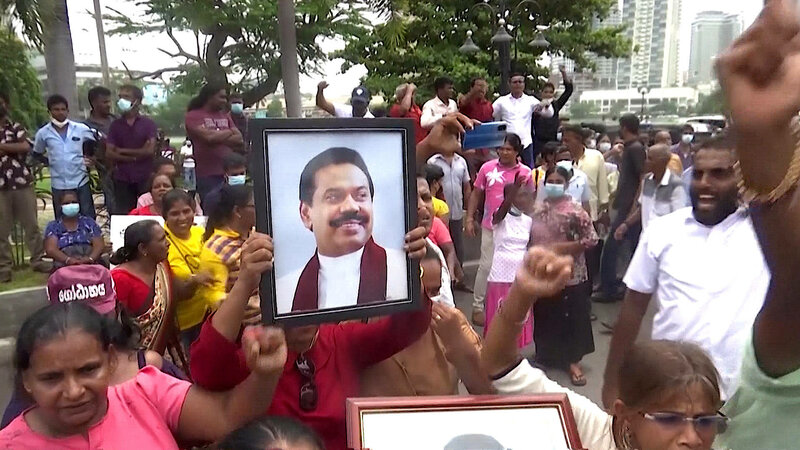Sri Lanka’s prime minister stepped down Monday following weeks of street protests over the country’s worst economic crisis in its history, which has seen skyrocketing food and fuel prices in the island nation. Prime Minister Mahinda Rajapaksa’s resignation came after supporters of the ruling party stormed a major protest site in the capital Colombo, attacking protesters and prompting clashes with police. President Gotabaya Rajapaksa, the outgoing prime minister’s brother, has declared a state of emergency and remains in power, despite protesters’ demands for the resignations of all members of the political dynasty that has dominated Sri Lanka’s politics for decades. “The gross mismanagement of our economy by this regime combined with the history of neoliberal policies is what has brought Sri Lanka to its knees,” says Ahilan Kadirgamar, a political economist and senior lecturer at the University of Jaffna in northern Sri Lanka.



 Sri Lanka
Sri Lanka Protest
Protest Economics
Economics Food/Chow
Food/Chow Oil and Energy
Oil and Energy


